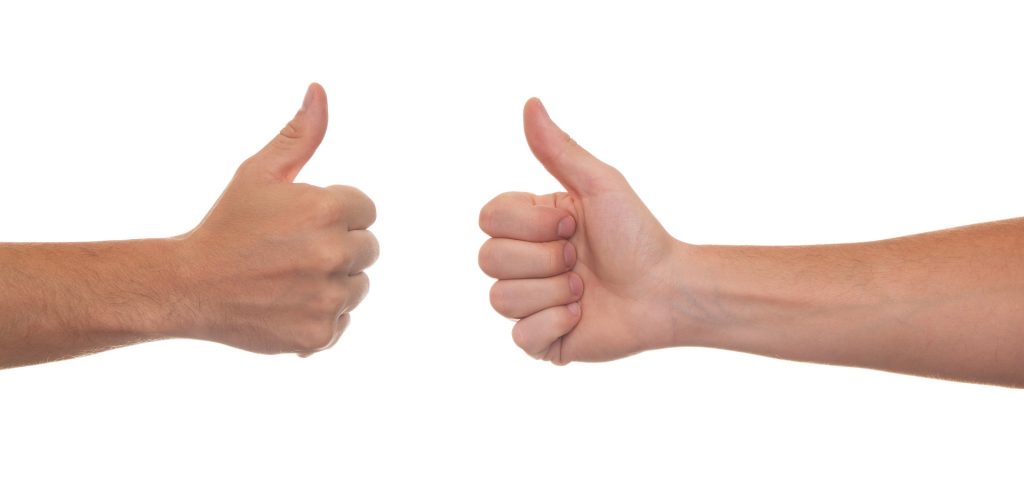
Visits: 27
Many love relationships are characterized by attachment.
According to psychologists, there are 4 particular types. And the degree of suffering that results varies depending on the type affected. Check them out.
In all areas, we generally associate attachment with its unpleasant, negative, destructive side.
Because when we become attached, the moment may come when the other person can detach… Not without pain.
More than the moment of “separation”, it is also the entire attachment process that causes suffering, in reality.
Because whoever says attachment says expectations, whoever says expectations says frustration, and whoever says frustration says disappointment when said expectations are ultimately not met.
It is in this sense that the personal growth trend and the followers of Buddhism see attachment in general (and not just romantic attachment) as something that must be let go: in fact, whatever the object and/or subject to which we are attacked, it is inevitably associated with suffering.
There are different types of attachment that you can suffer from…
Psychology and romantic relationship scholars have identified 4!
But what are they?
4 types of attachment identified by psychologists
According to the American psychologist Chris Fraley and his colleagues Niels G. Waller and Kelly A. Brannan there are 4 very specific types of attachment.
And the “degree” of suffering would vary depending on the type of attachment that characterizes you.
These types of attachment are in fact established by the evaluation of two specific variables: avoidance and anxiety.
It is these variables that therefore determine the level of suffering of the attacked individual.
For example, the greater the anxiety, the more pronounced the avoidance and the more intense the eventual suffering.
Type no. 1: Secure attachment
This is the “healthiest” type of attachment, the one that generates less suffering in the individual concerned. Avoidance and anxiety are low. As a result, the individual has less difficulty than others in communicating and expressing his emotions, and the romantic relationships he experiences are healthier and more long-lasting.
Type no. 2: detached attachment
The person characterized by “detached attachment” has a low level of anxiety but a high level of avoidance. She is very independent emotionally and prefers to be alone most of the time.
Type no. 3: Preoccupied attachment
The individual who belongs to the “preoccupied attachment” category experiences a high level of anxiety and a low level of avoidance. Unlike the type mentioned before, he prefers to be with someone rather than alone, experiences many negative emotions that are reflected on his loved one and therefore ultimately experiences more conflictual than peaceful relationships. Furthermore, it places all or almost all the responsibility for the couple’s love on the partner and her behavior. Here we start to suffer from emotional dependence! If a person is aware of what is happening, he can, with the help of a professional but above all with good work with himself, improve this characteristic and consequently the love relationship.
Type no. 4: fearful-avoidant attachment
This type of attachment is diametrically opposed to the so-called “secure” attachment: it is therefore the least healthy of all. Indeed, anxiety and avoidance levels are at their peak here. People who suffer from it are suspicious, lack confidence in themselves and their partner, and experience many unhealthy relationships. They believe without a doubt that all people are evil and for every situation there is a conspiracy against them. They are jealous and possessive to the point that in the long run the relationship becomes toxic and impossible because they live in the culture of suspicion and instill in their partner the culture of finding “alibis”!
To find out the type of attachment you suffer from, just take the test developed by Chris Fraley.
The aforementioned test is made up of around thirty statements, formulated as follows: “I tell almost everything to my partner”, “I’m afraid that when they get to know me, my partner won’t like who I really am”, “My partner often makes me doubt myself…”
Responses to these statements range from “strongly disagree” to “strongly agree.” Following your answers, the interviewee is assigned a score ranging from 1 to 7, in each of the previously mentioned variables (“avoidance” and “anxiety”).
And it’s that simple! So, what type of attachment characterizes you?
Originally posted 2023-12-18 10:38:26.


